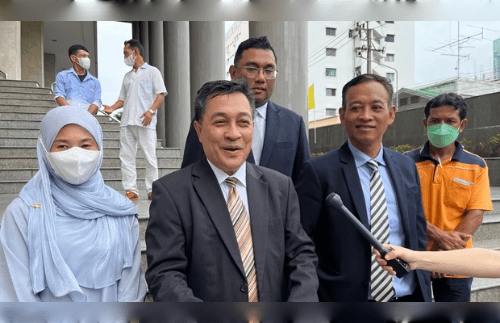He had returned home several times in past years, but this time was different.
By Shohret Hoshur for RFA Uyghur

A Uyghur design director who has worked for a Chinese locomotive manufacturer in Turkey for more than a decade was arrested by Chinese authorities in March when he returned to Xinjiang for a family visit, company employees said.
Qahar Eli, 39, left Turkey on March 27 with his family on a month-long trip to visit his parents in the town of Turpan with an assurance from his company that he would be allowed to return to Turkey, said his lawyer Wadat, who gave only one name.
Although he had a Chinese passport and had visited his hometown several times before with the company’s guarantee, this time he was arrested.
When Radio Free Asia contacted his employer, CRRC Zhuzhou Locomotive Co., based in China’s Hunan province, a staffer confirmed Eli’s captivity, categorizing his case as criminal.
“He has been arrested, so there’s nothing I can assist you with,” she said. “You should ask the police authorities. Given that his situation is now a criminal case, you would need to reach out to the police department.”
Another employee from the company’s human resources department said they had been unable to contact Eli for several months due to his detention.
“Qadir’s current situation is likely as you mentioned,” he said. “You heard correctly, he has been arrested. I’m unsure about the exact timing of his arrest.”
Wadat told RFA that he recently received information from unofficial sources that authorities were holding Eli captive, though his three children had yet to settle into school in Xinjiang, and his wife was living with her parents in Turpan.
Learned Turkish
Eli’s disappearance comes amid growing calls by Uyghur rights groups for China to be held accountable for its repression of the mostly Muslim minority group in Xinjiang.
Eli, who hails from Lukchun village in Turpan’s Pichan county, arrived in Turkey around 2010 after completing studies at the Beijing Institute of Education, said a person familiar with the situation who requested anonymity for safety reasons.
He learned Turkish and later worked as a translator for the locomotive company’s local subsidiary.
Zhuzhou Locomotive specializes in manufacturing high-speed electric locomotives and does business in more than 50 countries, making it a pivotal participant in China’s Belt and Road Initiative.
Eli was later promoted to design director in part because of his exceptional social skills, the person said. In this role, he oversaw the company’s projects in Istanbul, Ankara and Izmir.
Eli visited China a few times after 2017, when authorities started detaining thousands of Uyghurs in “re-education” camps under the guise of preventing terrorism and religious extremism, said a friend who requested anonymity for safety reasons.
In the past, the company had been able to resolve any difficulties Eli encountered during trips back to Xinjiang, he friend said.
RFA contacted officials in Lükchün village and Pichan county for information about Eli, but they declined to comment.
Cautious and distant
Wadat told RFA that Eli traveled with his wife and their children to Turpan and informed close friends that he would return to Turkey by April 26.
When Eli failed to return, Wadat began investigating his whereabouts.
“Qahar maintains relationships with influential figures in Turkey, including individuals at the ministerial level,” Eli’s friend told RFA. “However, even they are scared about China’s response and have refrained from speaking up.”
Despite living in Turkey for a decade, Eli was cautious and remained distant from the Uyghur community there, interacting only with a few classmates living abroad, his friend said.
“He is meticulous in his actions, avoiding any involvement in events and limiting his interactions with Uyghurs,” he said. “He placed a great deal of trust in the Chinese company.”
Eli initially played a key role in the company’s operations in Turkey, but after it solidified its presence there his significance diminished, said the person with knowledge of the situation.
Wadat speculated that Eli’s arrest could have stemmed from complaints from his Chinese colleagues.
“I believe that the integration of a Chinese Uyghur into Turkish society to this extent also upset the Chinese side,” he added.
Translated by RFA Uyghur. Edited by Roseanne Gerin and Malcolm Foster.
Copyright © 1998-2020, RFA. Used with the permission of Radio Free Asia, 2025 M St. NW, Suite 300, Washington DC 20036. https://www.rfa.org.














